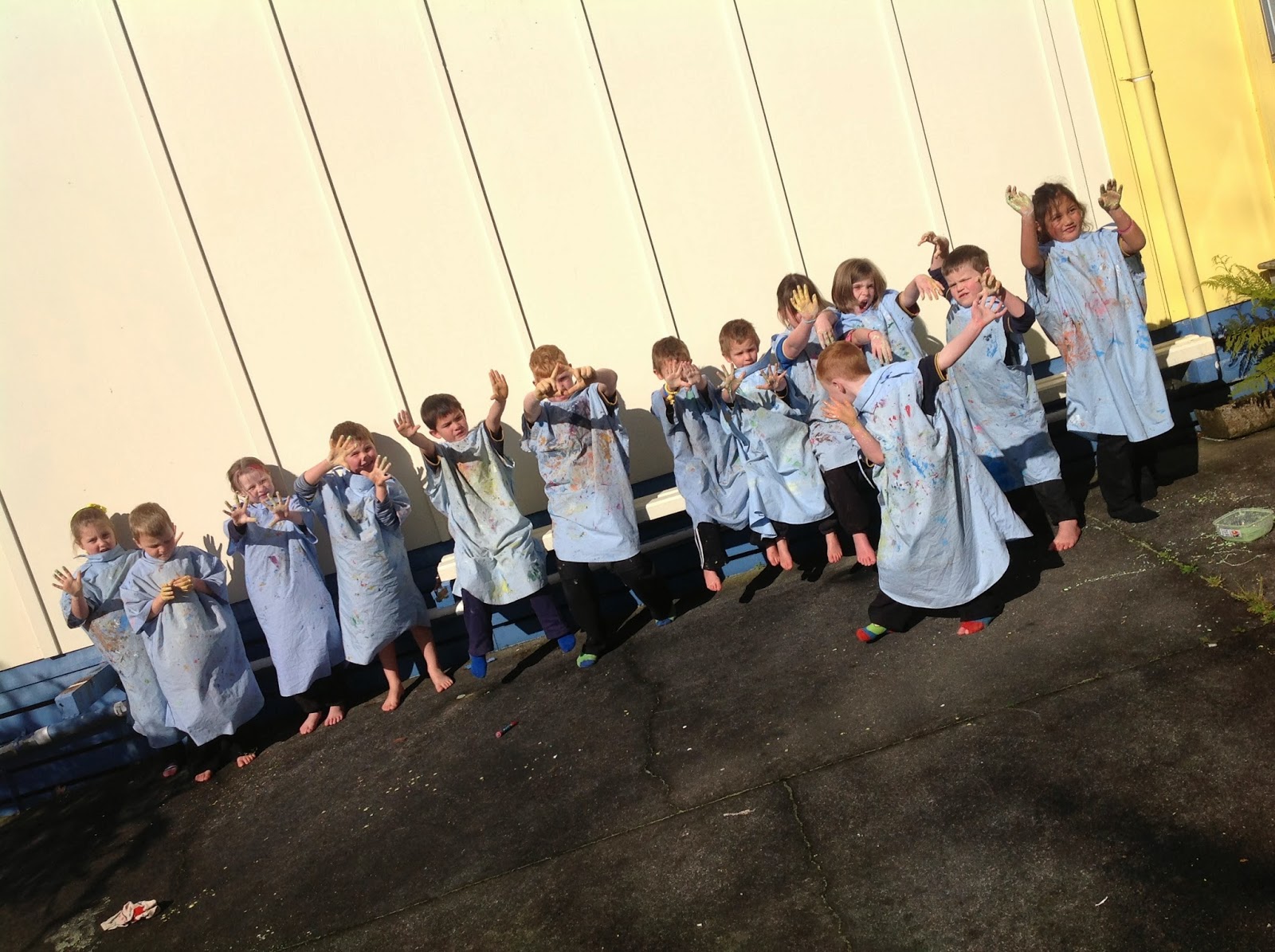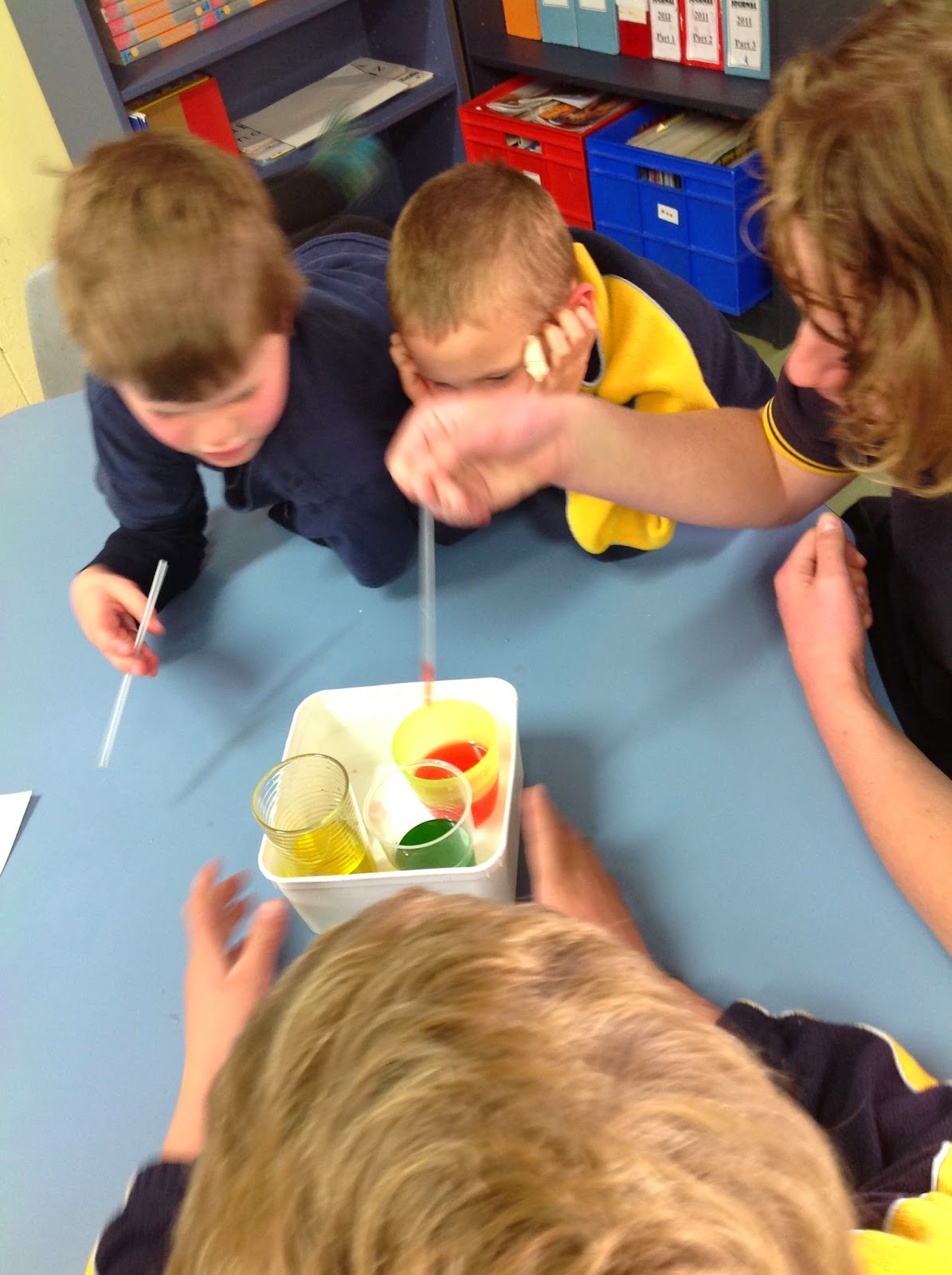On the last day of every term we always hold an open day for our community to share what we have been learning about that term. For term 3 we decided to have a science day.
Children and adults would rotate around 8 science activities over the day.
At the conclusion of our day, we would then send home the survey I had put together to find out their thoughts about science and science education.
The 8 rotations were either self led or led by a year 8 student who was an 'expert' at that activity. We thought this was a great opportunity to show off our great students and what they were capable of doing.
Some of the rotations the students had done as part of our 'sci-fit' programme, but there were some extra special ones that they had not seen before.
At our school we only have 35 students. All the students were present that day as well as the same amount of adults! For a small school I was blown away by the interest shown in what we are doing.
It was so awesome to see parents and older siblings working with our students and having a tonne of fun at the same time.
 |
| Air Canon |
 |
| Bloomin Flowers |
 |
| Cork poppers |
 |
| Sound machines .... yip all the kids got to take them home :) |
 |
| viscosity racing- which mysterious liquid traveled the fastest |
 |
| paper twirlers |
 |
| Colour wheels - must remember to wash the calico first next time! |
 |
| Gravity droppers.... which one is going to hit the ground first? |
 |
| chemical obseravations were a hit! |
 |
| everyone was really interested in this activity! |
 |
| cork poppers! |
The focus for the day from my point of view was explaining what the Nature of Science is all about. On the back of each instruction sheet was an explanation about the activity they were doing and how this was 'science education.' I either linked the activity to a context strand or a NOS objective.
As I went around each activity I was asking the adults about what was on the back of the sheet, I discussed how I would go about using an activity like these ones in the class setting or for teaching about particular ideas.
It was great to hear our students 'talking the talk' and using their scientific language throughout the day and showing their parents the skills that they have been accumulating.
It was awesome to see our 5 year olds trying to use stop watches and measuring tapes, and telling their parents that they had to repeat their test a few times before making a conclusion. It was wonderful to hear our Year 8 students explaning their activities to parents. It was really satisfying to see all the other students participating to the best of their ability and most importantly having fun.
By placing the emphasis on the nature of science, it made all the activities accessible to everyone that was there on the day. Whilst the parents may have been thinking about theories and scientific knowledge, their children were thinking about anything from correctly using equipment, taking turns, asking questions or the like. Even the pre-schoolers that came on the day were getting to experience the activities as well, which of course is building their knowledge and their own 'library of experiences.'
I am totally confident that the community surveys I sent home will come back full of great comments and insights into what our community thinks about science educations and how much they value what we are doing at our school.
Knowing that our community is supportive of what we are doing really gives me the confidence that I can not only dream about making our science programme amazing for our students but I can actually start to make it a reality!












